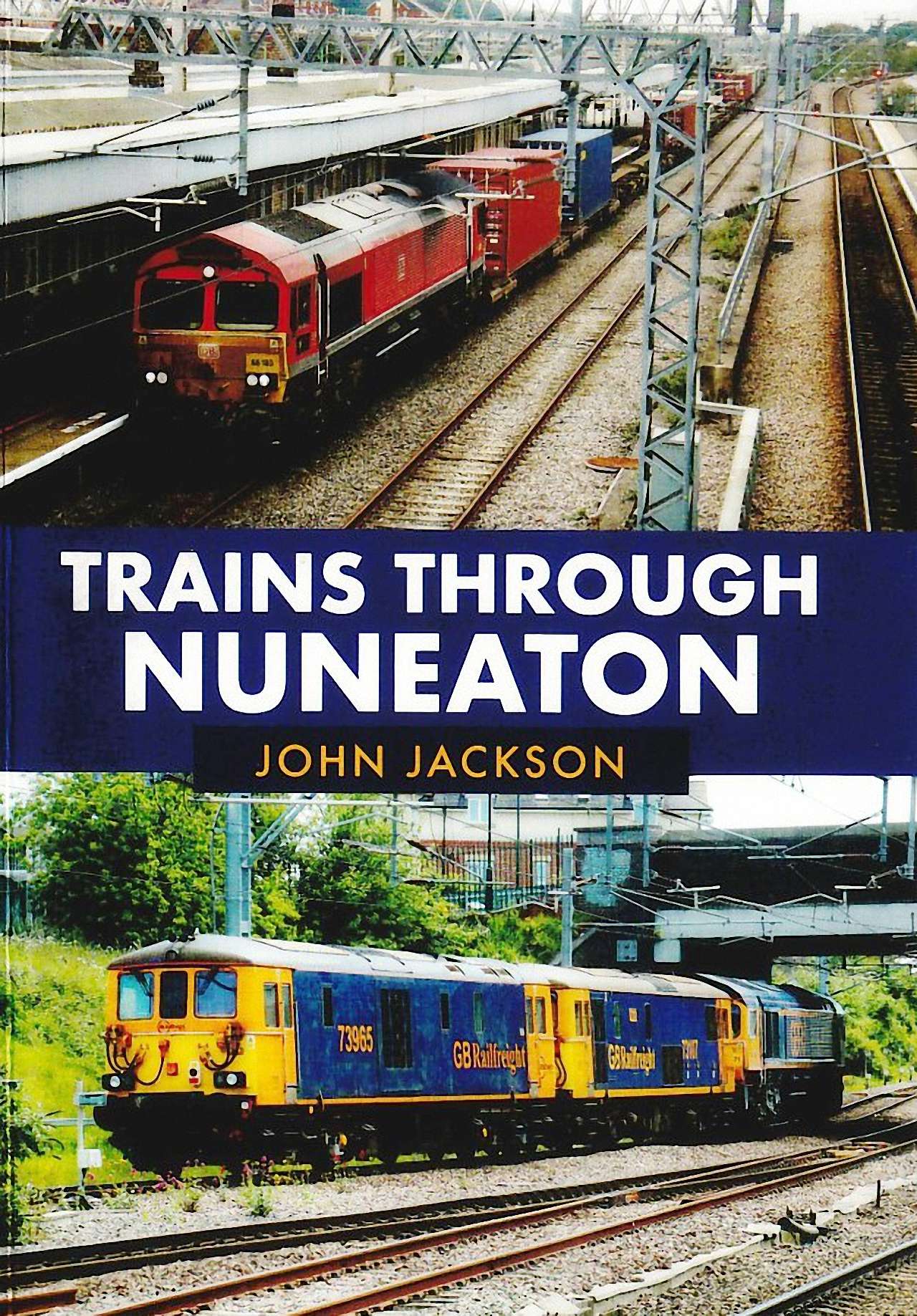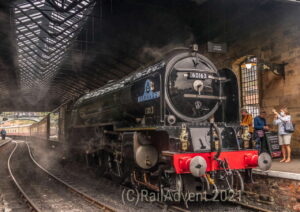Published by Amberley Publishing in July 2022 and written by John Jackson, this softcover book comes in the usual Amberley format of around 234 mm x 165 mm with 96 pages and 180 colour photographs. It has a published price of £15.99, but can be obtained online from Amberley Publishing for £14.39 or from Amazon for £11.19.
Until reviewing this book, I did not realise the importance of Nuneaton as a railway crossroads, which is clearly highlighted by a very useful map at the beginning. In a two-page introduction, the author does a good job of explaining just why Nuneaton is important as a railway crossroads, and the source and variety of trains that pass through the area.
With the great variety of trains to be seen, the author has made a good choice in splitting the book into sections covering passenger services and freight workings.
The first part covers passenger services, and is split into long-distance and stopping services on the West Coast Main Line, Cross Country services, services to Coventry and Leamington Spa, and charter services.
The section on freight services includes those operated by Colas, DB Cargo, Direct Rail Services, Freightliner, and GB Railfreight. These are followed by Royal Mail and Network Rail workings, Railhead Treatment Trains, and other operators’ trains.
The variety of liveries sometimes leads to confusion in which section a photo should be included, as both DB Cargo and DRS have painted some of their locos in the livery of the Scottish haulier, Malcolm.
Many of the photos in the book are of a standard three-quarter view of the locomotives / units themselves rather than showing more of the complete trains and their railway environs. What seems to be lacking in the book are photographs that provide an understanding of the complexity of working through the area.
The book includes the very useful map below which clearly shows Nuneaton’s importance as a railway crossroads. On the opposite page, it would have been better if the section title was in bold to make it stand out. Like a number of other pages in the book, these do not carry page numbers.

The pages below are in the “Charter Trains and other Passenger Stock” section, but instead of the page heading bearing the book title, it would have been more useful if it were the section title.

The pages below are the start of the freight section. For some reason, the author has titled this part “PROGRESS – Colas Rail” whereas the titles of all other parts in this section start with include ”Freight Workings” as part of their title. Also, the author does not explain why he uses the term “PROGRESS”.

The proliferation of Class 66 locomotives on freight workings, especially in the DB Cargo section, has resulted in many similar illustrations, with a distinct lack of variety in the selection of photos.

As in many photos in this book, the photos on the right-hand page below are more an appreciation of individual locomotives, in this case Class 88s, rather than adding to our appreciation of Nuneaton’s railway. The pages are in the “Freight Workings – Direct Rail Services” section but the locomotives are quite clearly not hauling freight trains.

In summary, the author does a good job of explaining just why Nuneaton is important as a railway crossroads, and its great variety of trains. However, the variety of liveries sometimes leads to confusion. Many photos show standard three-quarter views of locomotives themselves rather than providing views of complete trains or the railway environment around the area. The complexity of workings through Nuneaton explained in the Introduction is not supported by the book’s photographs. Useful for anyone with an interest in Nuneaton’s railways.
The book is available to purchase from Amazon for around £11.19.
We would like to thank Amberley Publishing for providing RailAdvent with a copy of the book for review.





Responses